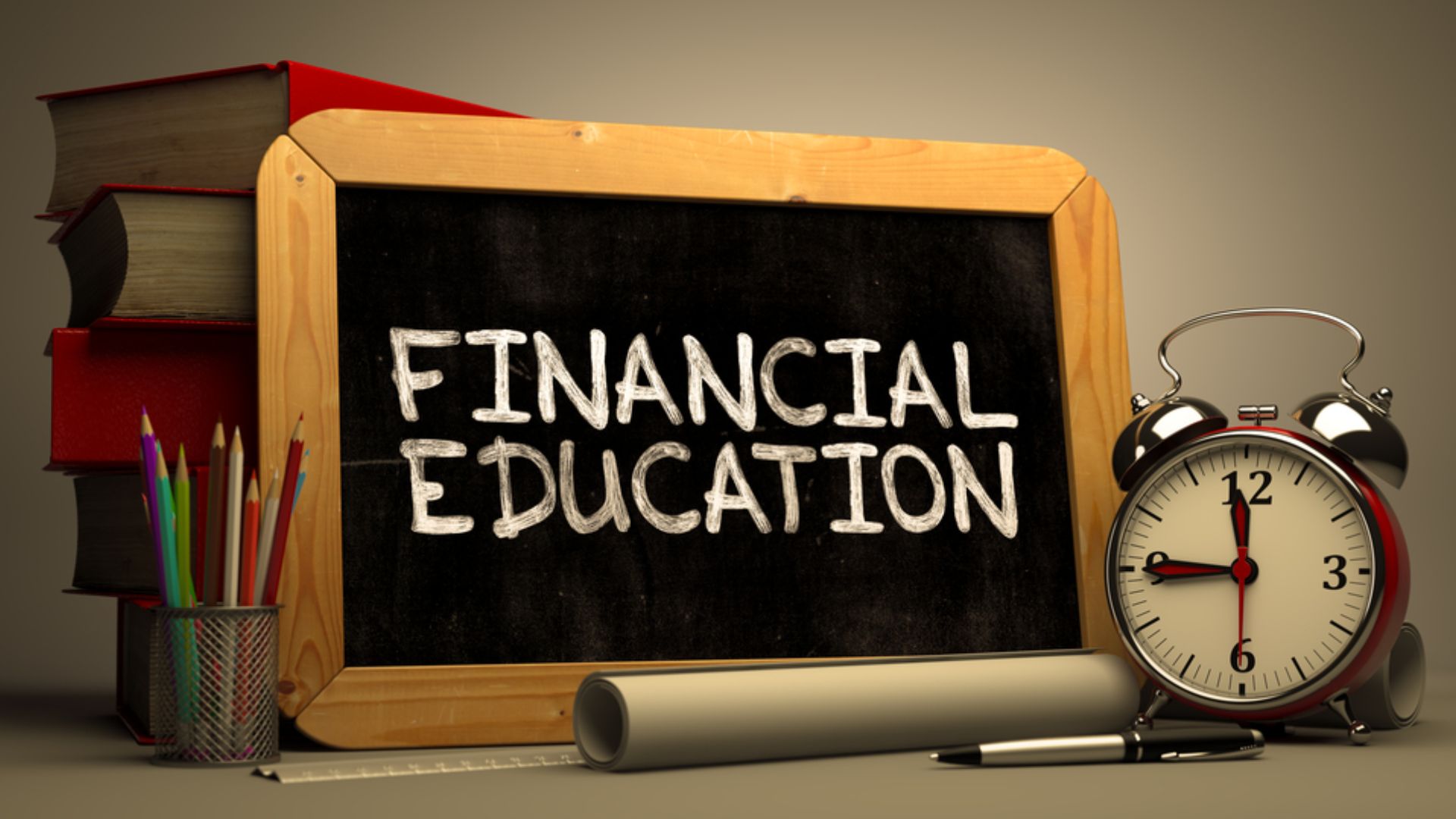
The importance of financial educationis more than ever at a time of unparalleled economic complexity. Our financial decisions, big and small, have a significant impact on our quality of life. Yet, far too often, most of us are trying to navigate this complex landscape with just a flashlight's worth of information, making our way through a confusing maze of acronyms and unknowns.
The idea of financial education has come to light as a solution to this urgent demand, showing the way to financial security and empowerment. Financial education includes a broad range of information and abilities necessary for making wise financial decisions, not only the ability to balance a checkbook and understand the mysterious world of stocks and bonds.
This article delves deep into the world of financial education, exploring its significance, its impact on our lives, and the strategies to enhance our financial literacy. By equipping ourselves with this vital knowledge, we can take control of our financial destinies, build a foundation of stability, and ultimately secure a brighter future for ourselves and our families.
What Is Financial Education?
“„The best investment you can make is an investment in yourself. The more you learn, the more you’ll earn.- Warren Buffett
The process of learning financial concepts and principles in order to manage one's finances appropriately is known as financial education. This involves having an understanding of budgeting, credit, debt, investments, and financial planning. To acquire financial knowledge, one can employ a personal financial adviser, books, internet resources, financial education programs, and other avenues.
The goal of financial education is to provide people with the knowledge and skills necessary to manage their money sensibly and achieve financial security. It can also help consumers steer clear of financial dangers and make wise choices about financial goods and services, such as credit cards, loans, and investments. Being aware of the value of financial education in order to live a stable and secure life.
In today's world, financial literacy is more important than ever. Achieving financial stability and security requires people to manage their money sensibly, especially with the variety of financial goods and services available. Only 57% of American adults are financially literate. (Source: Zippia)
Those who have a solid foundation in financial ideas and principles may take charge of their finances and make appropriate decisions about how to handle their money. As a result, financial success and financial health are significantly correlated with financial literacy.
The Importance Of Financial Knowledge
According to the Financial Industry Regulatory Authority's (FINRA) National Financial Capability Study, Americans who possess greater financial literacy are more likely to be able to save money, establish a three-month emergency fund, make ends meet, and open a retirement account.
Now more than ever, making wise financial decisions is essential. Consider retirement planning. In the past, pension plans were a popular way for employees to finance their retirement. The governments or businesses that sponsored the plans were responsible for both the financial management and the decision-making for the funds.
Nowadays, few employees receive pensions; instead, some are given the chance to sign up for 401(k) plans. Employees must make judgments regarding their investment options and contribution amounts in this regard. Individual retirement accounts (IRAs) and other tax-advantaged retirement funds must be actively sought out and opened by those without workplace choices.
In addition, longer retirements due to people living longer lives, Social Security benefits that hardly cover basic needs, a plethora of options from banks, credit unions, brokerage houses, credit card companies, and other sources, and complex health and other insurance options are all factors.
Financial education is essential for making deliberate and well-informed decisions, staying out of debt, guiding family members through these difficult choices, and securing a sufficient retirement income.
73% of teens want more personal finance education. ( Source: Zippia)
5 Critical Concepts Of Financial Education
Budgeting
As you work to improve your financial literacy, one of the most important initial steps you can take is to acquire good spending habits. Learning how to create a budget is one approach to accomplish this goal. Consider determining the monthly costs that you would include in your budget. This will assist you in keeping track of your spending.
Creating a budget helps prevent you from overspending on things that are not important to your life. In addition, eliminating unnecessary expenditures might free up additional space for savings and necessities. Budgeting may be done in a variety of ways, including the following;
- The 50-30-20 method - This strategy is setting aside fifty percent of your take-home income for your necessities, thirty percent for your desires, and twenty percent for savings.
- The zero-based method -Make sure that your monthly costs and savings are taken from your take-home pay until they reach zero. This will ensure that every dollar is spent with purpose.
- The envelope method - In order to accomplish this, you will need to create categories for all of your monthly costs and then place specific amounts of your take-home pay into envelopes, either physically or digitally, for various categories.
Building And Improving Credit
Your credit ratings impact numerous aspects of your financial life. Your capacity to lease a car, purchase a house, and apply for a credit card are all critical decisions that are heavily influenced by your credit score. Your credit score also plays a prominent role in those other significant decisions.
Because of this, it is essential to be aware of the current status of your credit score and the actions you may take to enhance it whenever possible. The following are some things that might be useful to you as you attempt to create a strong credit score and a healthy credit history;
- Utilize only the credit that you require.
- You should be aware of the potential impact that closing credit cards might have on the duration of your credit history.
- Your credit usage ratio should be maintained at or below thirty percent, which is the amount that the Consumer Financial Protection Bureau (CFPB) recommends.
- Make it a habit to check your credit reports on a regular basis for any inaccuracies, and also make sure to keep an eye on your credit scores for any changes.
- Keep a close eye on your debt-to-income ratio (DTI). Lenders want to see debt-to-income ratios that fall between 28 and 36 percent.
You will have a greater chance of receiving favorable conditions and better interest rates on credit cards and other loans if you are able to raise your creditworthiness to a greater extent.
Investing
A person must acquire knowledge about the fundamental aspects of investing in order to become financially educated. Interest rates, price levels, diversification, risk reduction, and indices are some of the components that need to be studied in order to guarantee that investments are profitable.
By gaining knowledge about the fundamental components of investments, individuals are able to make more informed decisions regarding their finances, which may lead to an increase in the amount of money they get.
Taxation
For the purpose of acquiring financial education, it is essential to acquire knowledge regarding the various sources of taxation and the ways in which they influence the net income of an individual.
There are a variety of ways in which one might earn income, including through jobs, investments, rental income, inheritance, and unexpected sources of income. It is possible to achieve economic stability and improve financial performance through income management if one is aware of the various income tax rates.
Saving
The ability to conserve money is another essential component of a well-rounded financial education. Traditional savings accounts, retirement savings funds, investment portfolios, and emergency funds are just some of the alternatives to traditional savings accounts that may be used to save money.
It is beneficial to outline your savings objectives in order to have a better understanding of the amount of money that you will need to set away. When you have to deal with bills and other obligations at the same time, it takes effort to save money. It is possible to save money while also paying off debt, however.
Strategies For Improving Your Financial Education
Self-Study And Resources Available Online
It is possible to obtain courses, articles, tutorials, and tools that are associated with financial education through a multitude of online platforms, websites, and applications.
Your pace of learning may be adjusted according to your comfort level and the requirements you have, and it can range from learning the fundamentals of budgeting to delving deeply into investing ideas.
Podcasts, webinars, and video lessons are examples of formats that give a variety of options to accommodate a variety of learning styles. With that being said, it is of the utmost importance to make sure that the sources of information are reliable and up to date.
Accessing Formal Education And Awareness Programs
Education that is organized is frequently the starting point for the basis of financial education. The fundamentals of personal finance, economics, and money management are taught in a variety of subjects in schools, colleges, and universities.
In addition to formal education, governments or financial organizations may launch awareness campaigns that are aimed at certain populations, such as families with low incomes or older persons.
There are various tools available to encourage financial education that are provided by nonprofit organizations such as the Financial Literacy Coalition. Make the most of these resources in order to better yourself.
Seeking Professional Advice
Counselors, planners, and financial advisers all bring a wealth of knowledge and skill to the table. They are able to provide individualized guidance that takes into account your current predicament, objectives, and level of comfort with risk.
The process of making difficult decisions may be made easier with the assistance of experienced advisers, whether you are preparing for retirement, investing in the stock market, or purchasing a property. Professionals are able to give up-to-date information, which ensures that you remain ahead of the curve as the financial environment continues to develop.
Networking And Learning From Peers
Experiential learning is precious when it is shared. When it comes to financial management, networking with peers, whether informally or through formalized organizations, can provide new views. Hearing about the positive and negative experiences that other people have had with their finances can give valuable insights and lessons.
Furthermore, peer talks have the potential to introduce you to new financial tools, products, or methods that you may not have come across otherwise. By maintaining a connection with a network, you can ensure that you are always up-to-date and educated in a world where financial products and trends are constantly evolving.
Does Financial Education Work?
People who lack financial education may find it difficult to understand financial concepts and terminologies and to make prudent financial decisions. Research has indicated that financial education initiatives have the potential to enhance financial literacy and lead to improved financial decision-making, such as debt reduction and savings growth.
It is essential to keep in mind that a variety of factors, such as the standard of the instructional materials and the level of individual involvement with the content, can influence the effectiveness of financial education.
It's also critical to remember that, in addition to financial education, a variety of other factors may influence an individual's financial behavior and consequences. Other factors, such as an individual's financial goals, resources, and personal circumstances, also have an impact on their financial well-being.
Financial education may be a helpful tool when it comes to helping individuals understand financial concepts and words and make informed financial decisions. People should take into account their circumstances while making financial decisions and, if necessary, seek expert advice.
How To Make Wise Financial Choices?
Making informed financial decisions requires a number of steps, including budgeting, learning about financial ideas and principles, setting financial objectives, and, when needed, seeking expert assistance. You can take the following steps to make prudent financial decisions;
Set Financial Objectives
Choose your financial objectives, such as emergency fund development, debt reduction, or retirement savings. Having clear goals can help you move closer to your financial objectives and manage your resources more effectively.
Make A Budget
A budget, which details your income and spending, is a tool for managing your money well. By creating a budget, you may identify areas where you can cut costs and devote more funds to your financial goals.
Become Informed
Learn about financial ideas and principles through books, the Internet, or financial education classes. You'll be able to manage your finances more effectively and understand the possible advantages and disadvantages of different financial services and products by doing this.
Consult A Professional
If you are seeking personalized guidance and direction on managing your finances, consider seeing a financial advisor or other specialist. Developing a financial plan that takes into account your particular financial requirements and objectives might be helped by a financial counselor.
Monitor Your Progress And Make Adjustments As Needed
To make sure you're on pace to reach your financial objectives, periodically review your budget and financial plan. To keep on course, make any required adjustments to your financial plan or budget. You may take charge of your finances and make wise financial decisions that will lead to financial security and stability by following these steps.
FAQs About Financial Education
Can Financial Education Improve Financial Well-Being?
Yes, studies show that improved financial literacy through education can lead to better financial decision-making and greater financial stability.
What Are Some Common Financial Education Goals?
Common goals include achieving financial independence, building an emergency fund, reducing debt, saving for major expenses, and planning for retirement.
Who Benefits From Financial Education?
Financial education benefits people of all ages and backgrounds, from children learning basic money skills to adults planning for retirement.
A Quick Recap About Financial Education
Financial education stands as a powerful tool for personal and societal financial well-being. It equips individuals with the knowledge and skills needed to navigate the complex world of finances, make informed decisions, and secure their financial futures.
By embracing financial education, people can break free from the cycle of debt, build a solid foundation for savings and investments, and ultimately achieve their financial goals. Furthermore, a financially literate population can contribute to economic stability and prosperity on a broader scale.
The importance of financial education cannot be overstated, and its benefits extend far beyond the individual, shaping a brighter and more secure financial landscape for all.




